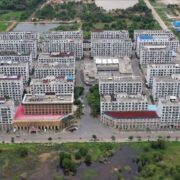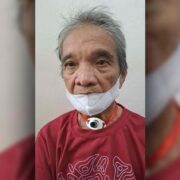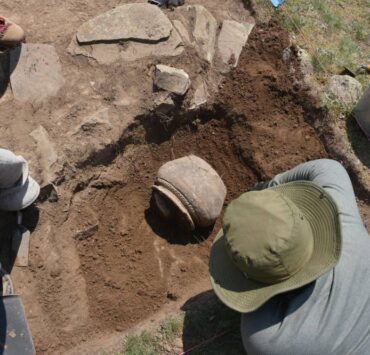Investing in defense

Republic Act No. 12024, also known as the Self-Reliant Defense Posture (SRDP) Revitalization Act, was signed into law by President Marcos last Oct. 8, 2024. The SRDP Act was labeled a priority piece of legislation by the Legislative-Executive Development Advisory Council.
The SRDP Act aims to develop the country’s defense industry by creating ways to boost the local production of defense equipment. House Speaker Martin Romualdez said this law would spur modernization of the country’s military by enhancing local defense industries. He further noted that the revitalization of the local defense industry as envisioned under this law will not only enhance our ability to safeguard our sovereignty but also contribute to economic growth by creating jobs, advancing technological innovation, and fostering a culture of self-reliance within the defense sector.
The focus on local production and preference to Filipino-owned enterprises will open up opportunities for local industry to grow and innovate as government, private sector, and foreign partners work together and collaborate to build a robust and sustainable defense ecosystem in the Philippines.
It’s about time this law was finally passed as this is a very crucial component of our country’s defense modernization program. As the lessons of the Ukraine war has shown, the demands and realities of warfare and protection of security interests have shown that a credible defense and deterrent posture require some measure of self-reliance that minimizes the risks that come from dependence on importing critical matériel and equipment, as well as local capacity to sustain operations over a prolonged period of time in the face of a technologically advanced threat.
Another factor why this law is crucial is the cost associated with modernizing our defense capabilities. The country is presently in the third phase of its 15-year defense modernization program under RA 10349 of 2012 which amended RA 7898 of 1995. This third horizon is expected to require P3 trillion or $35 billion for its implementation over the next decade, while the budget for defense is expected to grow to $6.2 billion from its current rate of around $4.1 billion. If we were to look at a specific example, two Navy corvette ships that are due to be delivered in 2025 and 2026 cost P28 billion. Of course, one cannot place any price for our country’s security and sovereignty, but considering the amounts of money involved and the other areas where money is needed as well such as for infrastructure, job generation, and social services, among others, this is a valid issue to consider and is one that the SRDP law, if properly implemented, can help address.
With its objective to develop a local defense industry and provisions on countertrade and offsets integrated in procurement policy and procedures, technology transfers, public-private cooperation, and focus on emerging and evolving technologies, the SRDP Act will also be able to facilitate the growth of other sectors and industries of our economy.
Under the Wassenaar Arrangement, which seeks to promote transparency and greater responsibility in transfers of conventional arms and dual-use goods and technologies, around 40 to 60 percent of controlled items in its list may be dual use, meaning it has both military and civilian applications. Military technology in encryption, cybersecurity software, and artificial intelligence also have civilian applications in finance, health care, and energy, among others. What this means is with proper implementation of the SRDP Act, the billions of pesos needed for modernizing our military can also be used to help us develop local industrial, R&D, and innovation capability for industries and sectors that utilize dual use technologies and goods. So, in a sense, investing in defense is also an investment to growing our local economy.
If we were to look at China, it has been successful in its strategy known as civil-military fusion, where cutting edge technologies developed in the civilian sector are intentionally integrated into military applications. In our case, let’s do the reverse and use the billions needed for defense modernization to also benefit our civilian sector and other sectors of our economy from opportunities generated via projects undertaken under the SRDP Act. In this manner, we are not only just spending for our defense, but also investing in it for a more progressive and secure future for our country.
Moira G. Gallaga served three Philippine presidents as presidential protocol officer, diplomatically posted to Philippine Consulate General, Los Angeles, and Philippine Embassy, Washington.

















